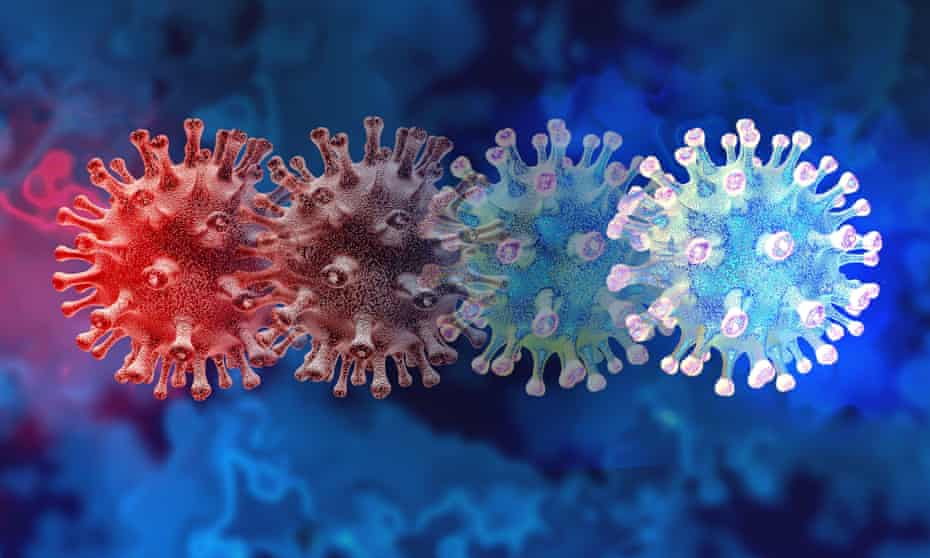Scientists warn of new Covid variant with high number of mutations
The B.1.1.529 variant was first spotted in Botswana and six cases have been found in South Africa

The number of cases confirmed by genomic sequencing is very small, with only 10 cases recorded in three countries, but the variant has sparked serious concern among some researchers because a number of the mutations may help the virus evade immunity.
The B.1.1.529 variant has 32 mutations in the spike protein, the part of the virus that most vaccines use to prime the immune system against Covid. Mutations in the spike protein can affect the virus’s ability to infect cells and spread, but also make it harder for immune cells to attack the pathogen.
The variant was first spotted in Botswana, where three cases have now been sequenced. Six more have been confirmed in South Africa, and one in Hong Kong in a traveller returning from South Africa.
Dr Tom Peacock, a virologist at Imperial College London, posted details of the new variant on a genome-sharing website, noting that the “incredibly high amount of spike mutations suggest this could be of real concern”.
In a series of tweets, Peacock said it “very, very much should be monitored due to that horrific spike profile”, but added that it may turn out to be an “odd cluster” that is not very transmissible. “I hope that’s the case,” he wrote.
Dr Meera Chand, the Covid-19 incident director at the UK Health Security Agency, said that in partnership with scientific bodies across the globe, the agency is constantly monitoring the status of Sars-CoV-2 variants as they emerge and develop worldwide.
“As it is in the nature of viruses to mutate often and at random, it is not unusual for small numbers of cases to arise featuring new sets of mutations. Any variants showing evidence of spread are rapidly assessed,” she added.
The first cases of the variant were collected in Botswana on 11 November, and the earliest in South Africa recorded three days later. The case found in Hong Kong was a 36-year-old man who had a negative PCR test before flying from Hong Kong to South Africa, where he stayed from 22 October to 11 November. He tested negative on his return to Hong Kong, but tested positive on 13 November while in quarantine.
England no longer has a red list to impose restrictions on travellers arriving from abroad. People who are not fully vaccinated must test negative before flying and arrange two PCR tests on arrival. Those who are fully vaccinated need to have a Covid test within two days of landing.
Scientists will be watching the new variant for any sign that it is gaining momentum and spreading more widely. Some virologists in South Africa are already concerned, particularly given the recent rise in cases in Gauteng, an urban area containing Pretoria and Johannesburg, where B.1.1.529 cases have been detected.
Ravi Gupta, professor of clinical microbiology at Cambridge University, said work in his lab found that two of the mutations on B.1.1.529 increased infectivity and reduced antibody recognition. “It does certainly look a significant concern based on the mutations present,” he said. “However, a key property of the virus that is unknown is its infectiousness, as that is what appears to have primarily driven the Delta variant. Immune escape is only part of the picture of what may happen.”
Prof Francois Balloux, the director of the UCL Genetics Institute, said the large number of mutations in the variant apparently accumulated in a “single burst”, suggesting it may have evolved during a chronic infection in a person with a weakened immune system, possibly an untreated HIV/Aids patient.
“I would definitely expect it to be poorly recognised by neutralising antibodies relative to Alpha or Delta,” he said, but added: “It is difficult to predict how transmissible it may be at this stage. For the time being, it should be closely monitored and analysed, but there is no reason to get overly concerned, unless it starts going up in frequency in the near future.”

Geen opmerkingen:
Een reactie posten
Opmerking: Alleen leden van deze blog kunnen een reactie posten.